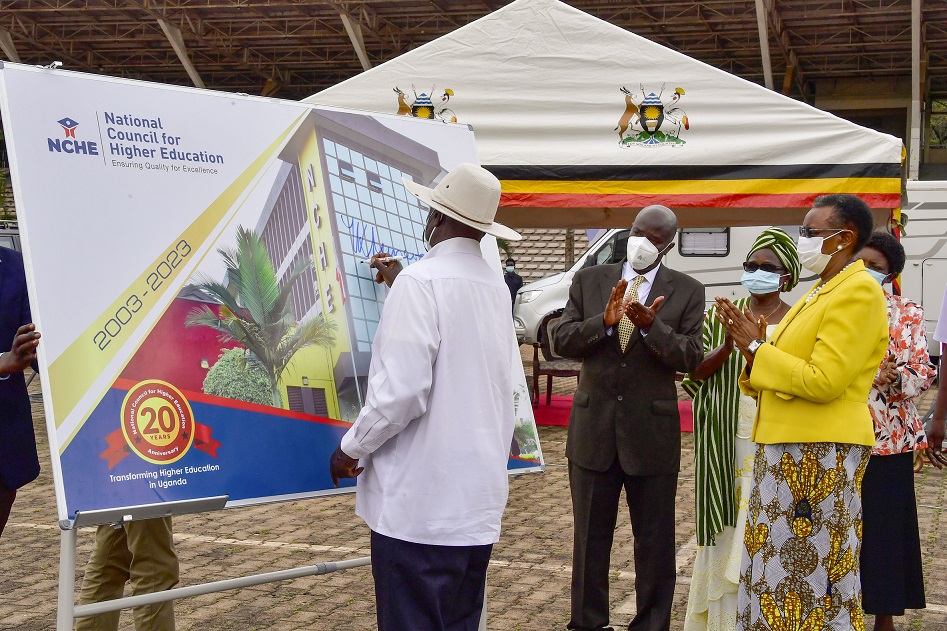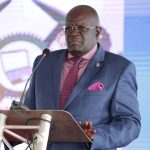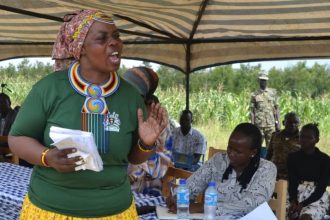President Yoweri Kaguta Museveni has encouraged education managers in Uganda to focus on teaching the fundamentals of nature and its natural laws to learners. He believes that this approach will help Ugandans better address societal issues.
During the 20th Anniversary celebrations of the National Council for Higher Education (NCHE) held at Kololo Independence Grounds, President Museveni emphasized the importance of understanding natural science. He asserted that modern education, especially at higher levels, should revolve around two key aspects: comprehending nature and its natural laws. According to him, this knowledge is essential for solving problems and preventing the influence of superstition and witchcraft in society.
President Museveni cited examples of the misconceptions prevalent in Ugandan society, such as the belief that warmth, rather than bacteria, causes bananas to ripen when they are placed in the ground. He stressed the need for Ugandans to align their thinking with scientific principles.
The President also highlighted the significance of embracing biotechnology laws to safeguard against potential misuse. He warned that staying away from biotechnology could leave Uganda vulnerable to both positive and negative uses of this technology by others.
Furthermore, President Museveni discussed the question of whether science and religion are at odds. He expressed his disagreement with universities that claim science excludes the concept of God. He argued that understanding natural laws does not negate the existence of a higher power but instead helps to demystify and solve real-world problems.
The President acknowledged the challenges related to limited human resources in promoting science in government institutions but promised that the government would provide the necessary support.
He also advocated for higher pay for scientists in government universities, citing their urgent need to contribute to the nation.
In her address, the First Lady and Minister of Education and Sports, Maama Janet Museveni, praised her predecessors under the National Resistance Movement (NRM) government for shaping the regulation of higher education in Uganda. She emphasized the need for higher education institutions to prioritize both quantity and quality, ensuring that programs maintain high standards.
Maama Janet highlighted the importance of making higher education relevant to society by diagnosing problems and prescribing effective solutions. She called for the integration of information and communication technologies (ICTs) into pedagogical approaches to equip students with the necessary skills for the job market.
The Chairperson of NCHE, Prof. Eli Katunguka, commended the government for creating policies that expanded the provision of higher education services and increased the number of public and private institutions. He emphasized the need for updated regulations to effectively oversee these institutions.
NCHE Executive Director, Prof. Mary J. N. Okwakol, detailed the council’s achievements over the last two decades, including the development of a quality assurance framework and the establishment of a permanent home for the council.
The event was attended by ministers, Members of Parliament, education sector stakeholders, and other dignitaries.




















